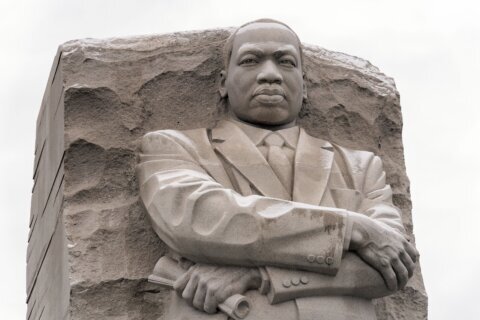Parties and presents, treasured foods and fun. The holidays are full of these promises to bring sparkle and delight to a cold, gray winter. Yet the merry mood might be dampened by the agita of all the festivities — whether you’re worrying about how to pay for the seasonal magic, find time to shop for presents, prepare a feast, avoid COVID-19 at gatherings or keep the peace when conversations turn to politics at the dinner table.
You’re not the only one who may feel this way. According to a new poll from the American Psychiatric Association (APA), 31% of Americans anticipate being more stressed this holiday season than last year, representing a 9% increase since 2021.
“Finances are a major component this year,” says Dr. Petros Levounis, APA president-elect and professor and chair of the Department of Psychiatry at Rutgers New Jersey Medical School. “People are worried about a possible recession and not being able to negotiate the increased expenses of the holidays the way they’ve been able to do it in the past.”
[READ: Tips for Relieving Daily Stress and Calming Down.]
Holiday Stress By the Numbers
The APA surveyed more than 2,200 adults between November 9 and November 14 on a range of concerns related to the holiday season. Among the findings, researchers found:
— Affording gifts and meals: 50% of respondents (compared to 46% in 2021) said they’re worried about affording holiday gifts this year, and 39% (compared to 35% in 2021) felt worried about paying for holiday meals.
— Finding and securing gifts: 37% of respondents (compared to 40% in 2021), especially people age 44 or younger or people making less than $50,000, reported feeling stressed about finding and securing holiday gifts.
— Spreading or contracting COVID-19: About 25% of respondents were stressed about spreading or contracting COVID-19 at a holiday gathering. The numbers are down significantly from last year, when about 35% reported COVID-19 as a holiday stressor.
— Traveling for the holidays: 21% of respondents were less worried about traveling in 2022, compared to 30% in 2021.
— Discussing politics: 19% of respondents (compared to 26% in 2021) were less worried about discussing politics this year. Young adults and Democrats, however, are more likely to be stressed about political discussions.
— Discussing COVID-19: 18% of respondents were less worried this year about spending time with people who have different views on COVID-19, compared to 30% last year.
[READ: Vitamins for Stress: Do They Work? Vitamins for Stress: Do They Work?]
Other Drivers of Stress
Several other factors can cause stress to creep into (or overwhelm) the holidays.
High or unrealistic expectations
People often go into the holiday with idealized expectations of what the experience could or should be.
“We put a lot of pressure on ourselves for the perfect dinner, the perfect celebration or the perfect reunion,” says Aaron Brinen, a psychologist and assistant professor of psychiatry and behavioral sciences at Vanderbilt University Medical Center. “It’s stressful to prepare for it. And even if you nail everything, you walk away completely exhausted and stressed.”
Loss or change
The holidays may feel different if you’ve recently lost a loved one, and making the season bright without them might feel sad or stressful.
“We’ve all been touched by enormous grief during the pandemic,” Brinen says. “Many people are coming together for the first time, and a loved one is no longer there. That person may have had a large role in making the holidays special, and you’re wondering how to make that happen now that they’re gone. It can be very stressful.”
Mental illness
People with mental illness — such as depression, obsessive compulsive disorder, post- traumatic stress disorder or schizophrenia — may feel particularly vulnerable during the holidays.
“For example, in PTSD, maybe it’s the memory of a trauma or something that happened at the holidays,” Brinen says, “and the more you try to avoid that memory, the more it comes back, which feeds stress.”
[See: Tips to Manage Stress at Work.]
Stress and Its Risks
Stress occurs when the brain senses danger, triggering a cascade of physiological changes that prepare you to jump out of harm’s way. Stress hormones surge through your body. Sugar and fat enter the bloodstream to deliver energy to cells. Your heart and lungs work faster, muscles tighten and blood pressure rises. It’s not usually a problem if it’s a temporary state.
“For a majority of people, holiday stress is short-term. January rolls around, and we bounce back to our everyday lives,” Levounis says. “But there are some people for whom this stress adds to existing conditions.
Relieving Holiday Stress
Several strategies can help you cope and prevent holiday stress.
Prepare early
Brinen says being prepared ahead of time can help us feel less stressed. He suggests following these tips as soon as possible:
— Make a list of gift ideas.
— Plan gatherings and any COVID-19 restrictions you’d like to observe.
— Arrange travel logistics.
— Come up with responses to help you avoid disagreements.
“If you know your uncle will bait you into an argument, have a prepared answer,” Brinen suggests. “Write it out, practice it. Say, ‘It sounds like you feel strongly about that, and I love getting to see you. But let’s just have fun today,’ and then change the subject.”
Maintain healthy lifestyle habits
A growing body of evidence suggests that stress can promote poor lifestyle choices — such as addictive behaviors and bad habits — by disrupting your ability to regulate self-control, make decisions and practice healthy behaviors. In turn, unhealthy habits such as not getting enough sleep or eating a poor diet prime the body for stress. Left unchecked, this continues the harmful cycle.
Your best defense against stress is to maintain healthy habits. Exercise daily (even just for 20 minutes), eat a healthy diet, get enough sleep and limit alcohol intake.
“These habits are particularly vulnerable during the holidays when there are trays of desserts and late-night partying,” Levounis says. “Try to safeguard your routine.”
Practice radical acceptance
Maybe you don’t have enough money to celebrate the holidays the way you’d like or perhaps a holiday gathering doesn’t include the same people it once did.
“One way to cope with that is by radically accepting the situation as it is right now,” Brinen says. “Know that it won’t always be this way and that trying to change it and being upset about it will only bring more misery.”
Focus on what makes you happy
Remember that holidays are not just for others, but for you to enjoy, as well. Give yourself a break with a little self care.
“There’s a tendency to overextend ourselves to make everyone else happy, but we ignore our own happiness during the holidays,” Levounis says. “So, take a walk or stay at home and watch ‘The Great British Baking Show’ if you like.”
Enjoy the moment
Getting caught up in holiday tasks or worries can cause us to miss important details that make the holidays memorable. Brinen urges you to simply enjoy what unfolds.
“Whatever we’re able to do at the holidays,” he says, “it will be special if we give ourselves permission to engage in it.”
More from U.S. News
The Best Healthy Holiday Snacks and Desserts
Secrets to Staying Fit During the Holidays
How to Make the Holidays Less Stressful originally appeared on usnews.com







